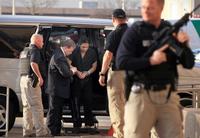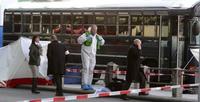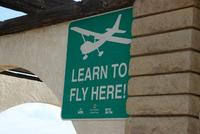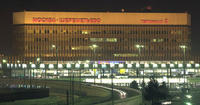-
On bangs and whimpers
Yesterday was the first day of the congressional hearings on Islamic radicalization in America; it is already clear that the hearings will not become important and memorable like the Army-McCarthy Hearings of the early 1950s, the Fulbright hearings of the late 1960s, or the Church Hearings of the mid-1970s; in today’s political climate, nothing can bring a conversation to an end more quickly than accusing a public figure of engaging in stereotyping ethnic or religious minorities, of ethnic profiling and scapegoating — whether or not such accusations have any merit; the Democrats on the committee went on the offensive, painting the hearings as illegitimate and making the hearings themselves the focus of attention and debate; the tone and body language of many of the Republicans on the committee showed that they grasped that this was a no-winner for them; yes, they denied charges by Democrats that this was a case of witch hunting and stereotyping, but they acted as if they were simply hoping to ride out the hearings without doing anything too disastrous
-
-
Arrest of Saudi student prompts questions on visa security

The FBI’s arrest of Saudi national Khalid Ali-M Aldawsari for allegedly trying to purchase bomb-making chemicals, plotting to smuggle a bomb into a nightclub, and planning to plant explosives in toy dolls; the case of Aldawsari, a student of chemical engineering at Texas Tech on a student visa, has ignited a debate among House lawmakers over whether further steps need to be taken to screen or monitor people in the United States on visas
-
-
Attack in German airport reveals airport security gaps

The second terrorist attack at an international airport in two months has further revealed gaps in airport security; a gunman boarded a U.S Air Force bus at Germany’s busy Frankfurt International airport and killed two airmen and injured two others; following 9/11, governments have primarily focused their efforts on screening passengers and bags, and largely left baggage claim areas, ticketing booths, and parking lots unprotected; in the aftermath of the suicide bombing in Russia last month, the United States has begun to deploy “unpredictable” security measures throughout its airports; some security analysts are skeptical of these additional security measures believing that they are impractical and advocate for increased cooperation between TSA and local law enforcement
-
-
Viagra aficionado's hardly concealed "weapon" makes it past TSA
John Hargrave, an advertising executive with penchant for off-beat humor decided, an hour before heading to the airport, to take not just one maximum strength Viagra pill, but three, with the reasoning that “—- you only get fondled once”; Hargrave also took Viagra whilst attending a Catholic Church, synagogue, and a Church of Scientology in hopes of disproving the claim that Viagra helps men only when they feel sexually excited
-
-
EU plans to sabotage US airport liquid regulations
U.S. airport officials are worried about a European Union plan to partially lift a ban on passengers carrying wine, perfume, and other liquids purchased at duty-free shops in airports; the new security gap may confuse and frustrate passengers who travel thousands of miles with expensive items only to be told they must trash them on connecting flights to the United States
-
-
Adidas offers TSA-friendly sneakers
Adidas cashes in on airport security by offering the SLVR S-M-L Concept shoes; the shoes are TSA-friendly, with a stretchy upper and expandable sole which makes it easy to slip them off when going through a security line; the $140 per pair shoes also have fake laces on top so you do not look like you bought them on the over-60s shopping channel
-
-
Man boards plane with three box cutters at New York's JFK
On Saturday 26 February 2011, a man slipped passed TSA security screeners at New York’s JFK Airport and boarded a plane with three box cutters; the box cutters were only discovered after a flight attendant saw them fall out of his bag; two TSA agents and their supervisor did not see the blades as they passed through an X-ray machine; the flight was grounded for three hours as the plane’s passengers and crew members were evacuated and searched while the plane was swept for bombs; the two agents and their supervisor “will all be disciplined and undergo remedial training”; the passenger was not charged with any crime
-
-
TSA and ICE to cut down on alien flight lessons

Several months after immigration officials arrested Thiago DeJesus, an immigrant owner of a flight school in Stow, Massachusetts, and thirty-three of his Brazilian pupils for being in the United States illegally, officials have not instituted new safeguards to prevent something similar from happening again
-
-
TSA Puffer machines pulled from service
The high-tech $150,000 Puffer machine was designed to blast passengers with a puff of air and then analyze the particles it shook loose searching for any sign of explosive materials; the dirt, debris, and humidity commonly found in most airports rendered the units useless and were determined to rarely work; after spending nearly $30 million to buy and maintain 94 Puffers, TSA last year retired them from service
-
-
New DHS budget includes more money for airport scanners
As lawmakers are trimming the budgets of many programs and agencies in an effort to reduce the deficit, funding for airport scanners has increased; overall discretionary funding for DHS has grown 0.7 percent to $43.2 billion, and includes more funding for full-body scanners; the Obama administration’s budget request allocates $77 million for the purchase of 275 additional full-body scanners; each scanner costs $280,000 and the additional order will bring the total number of scanners deployed at U.S. airports to 1,275; the Transportation Security Administration (TSA) has introduced new software that projects a non-gender specific image to ease concerns over privacy issues that sparked a backlash last year
-
-
Arizona legislators thwarted by TSA
The TSA has thwarted the effort by Arizona legislators to require airports statewide to hire private firms instead of relying on the federally procured screening agents; Phoenix officials support TSA chief John Pistole’s rejection of all incoming security contracting proposals
-
-
Chechen warlord claims responsibility for Moscow airport bombing
Doku Umarov, the notorious head of the Chechen extremist group Caucasus Emirate, claimed responsibility for the 24 January suicide bombing at Moscow’s airport that left thirty-six people dead and 180 injured; Umarov promised further attacks and spoke of his organization’s ability to carry out operations “whenever and wherever [they] want”; Umarov’s group is also responsible for the March 2010 bombing in the Moscow Metro and derailing a train in November 2009; Caucasus Emirate seeks to establish a Muslim nation in the Caucasus region and expel Russia
-
-
Revamping inbound mail security
After an explosive printer cartridge was found last year en route to the United States in UPS and FedEx shipments, DHS and industry are now collaborating to establish “precautionary” security measures and improve the flow of parcels and packages
-
-
Largest Moscow airport testing of facial biometric system

Moscow’s busy Sheremetyevo International Airport recently concluded initial tests of a new facial biometric security system; the system, BROADWAY 3D, relies on a three dimensional surface scan of an individual’s face; the system is highly automated and minimizes the need for human supervision; during its one month of testing, 3,500 people were automatically screened with 100 percent accuracy; BROADWAY 3D is manufactured by Artec Ventures; Sheremetyevo International is Moscow’s largest airport and has seen rapid increases in passenger traffic; last year more than nineteen million people traveled through the airport
-
-
Risk-based security approach on TSA's horizon
Several industry organizations are proposing dividing airline passengers into three categories — trusted, regular, or risky — and treating members of each category differently at airports security checkpoints; the categorization of passengers will be done by taking data that the government and the airlines are already collecting about passengers and bring it to the checkpoint
-
- All
- Regional
- Water
- Biometrics
- Borders/Immig
- Business
- Cybersecurity
- Detection
- Disasters
- Government
- Infrastructure
- International
- Public health
- Public Safety
- Communication interoperabillity
- Emergency services
- Emergency medical services
- Fire
- First response
- IEDs
- Law Enforcement
- Law Enforcement Technology
- Military technology
- Nonlethal weapons
- Nuclear weapons
- Personal protection equipment
- Police
- Notification /alert systems
- Situational awareness
- Weapons systems
- Sci-Tech
- Sector Reports
- Surveillance
- Transportation
Advertising & Marketing: advertise@newswirepubs.com
Editorial: editor@newswirepubs.com
General: info@newswirepubs.com
2010-2011 © News Wire Publications, LLC News Wire Publications, LLC
220 Old Country Road | Suite 200 | Mineola | New York | 11501
Permissions and Policies
Editorial: editor@newswirepubs.com
General: info@newswirepubs.com
2010-2011 © News Wire Publications, LLC News Wire Publications, LLC
220 Old Country Road | Suite 200 | Mineola | New York | 11501
Permissions and Policies
